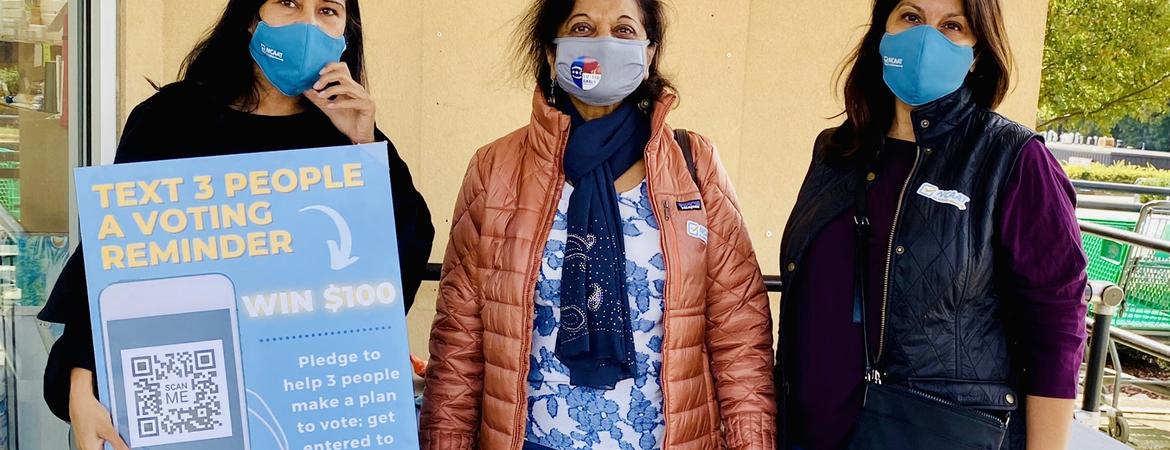Center for Social Innovation

The picture — or the lack of one — was worth a thousand words.
“For one of our mailers, I was looking for pictures of candidates with AAPI voters — and they mostly just don't exist, because candidates aren't talking to AAPI voters,” recalls Chavi Khanna Koneru, executive director of the civic engagement organization North Carolina Asian Americans Together.
For decades, Asian American voters haven’t been courted as heartily by presidential campaigns as other groups, but the political world has started to play catch-up. And in battleground states like North Carolina, which President Donald Trump carried by less than 4 percentage points in 2016, the candidates this year really do have to fight for every vote: As of this week, RealClearPolitics polling averages showed Trump and former Vice President Joe Biden in a dead heat in North Carolina, with Biden up by less than 2 percentage points.
According to numbers compiled by APIA Vote and AAPI Data, there are nearly 172,000 eligible Asian American voters in North Carolina, representing about 3.5 percent of the electorate. The state’s total AAPI population came in at just over 363,000 — exploding by 154 percent since 2000. Indian Americans accounted for well over half of the AAPIs in North Carolina, followed by people of Chinese, Korean, Vietnamese and Japanese descent.